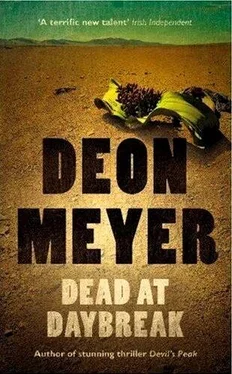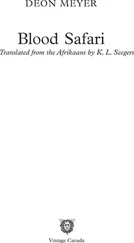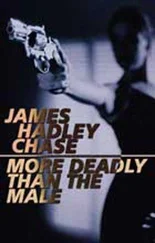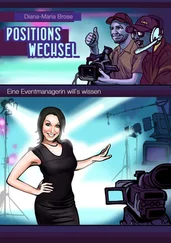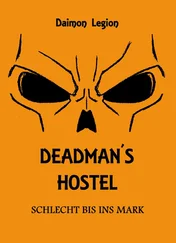“It’s your choice.”
“There are too many uncertainties. We can speak to her when we have more.”
She picked up her attaché case. “I have to go.”
He unfolded his arms. “I’ll phone you if I find something.” Just please don’t come to my house again . But he didn’t say it.
“You have my cell phone number?”
“No,” he said.
She opened her case again, took out a card, handed it to him. Then she turned and walked to the door. He noticed that she had a pretty, rounded bottom beneath the skirt.
“I don’t have an umbrella.” A statement, almost aggressive.
She stood at the door and smiled at him. “Is that Domingo?”
“What?”
“The music.”
“No.”
“I thought it was the sound track from the movie. You know, Zeffirelli’s – ”
“No.”
“Who is it?”
She had to leave. He didn’t want to discuss music with her.
“Pavarotti and Sutherland.”
“It’s beautiful,” she said.
“It’s the best.” Biting his tongue. It’s none of her business .
She was quiet for a moment. Then she looked at him, frowning. “You’re an odd man, Van Heerden.”
“I’m trash,” he said quickly. “Ask Kemp.” And opened the door for her. “You have to go now.”
“You did good work,” she said, and turned her head sideways against the rain and ran down the stairs. He heard her laugh, one quick sound, and then the BMW’s roof light came on when she opened the door and got in, waved to him. The door slammed and the light went off. He closed the front door.
He walked to the CD player and switched off the music. She knew fuck-all about music. Domingo . Indeed.
He would have to phone her in the morning. Tell her he would come to her office every day, just before she went home, for a complete report.
She mustn’t come here again.
Or he would write a report every evening and take it to her.
The telephone rang.
“Van Heerden.”
“Good evening,” a woman’s voice said. “My name is Kara-An Rousseau. I don’t know whether you remember me.”
♦
Hope Beneke drove home slowly on the N7, the windshield wipers at full speed. This afternoon she had wanted to murder him; this evening she had wanted to hug him. She bit her lip and hunched over the steering wheel, trying to see through the rain. Now she understood. His baggage wasn’t anger. It was pain. And guilt.
Now she could distance herself. By understanding.
That’s all.
That’s it .
∨ Dead at Daybreak ∧
DAY 5
SATURDAY, JULY 8
∨ Dead at Daybreak ∧
14
The house was full of books. And often filled with writers and poets and readers, arguments and animated conversations – late one Saturday night two women almost came to blows over Etienne Leroux’s Seven Days at the Silbersteins . A reading and a discussion of the work of Van Wyk Louw lasted through the night until after lunch on the Sunday.
And into this circle of literary luminaries I brought Louis L’Amour.
I hadn’t been an early reader. There were, I thought, far more interesting things to do. As my mother allowed me more freedom, there were the usual school activities and the more informal boys’ play (how many gangs we formed!), fishing in the Vaal River (with Uncle Shorty de Jager, live crickets, without a weight), the investigation of the east shaft’s collapsed mine dumps, the eternal building and rebuilding of Schalk Wagenaar’s tree house.
Then, the discovery of photo-stories. Günther Krause read Mark Condor. Takuza. Captain Devil. With his parents’ permission. (His mother read Barbara Cartland and others of her sort, and his father wasn’t home very often.) On Saturday mornings we went to Don’s Book Exchange for a new supply for Günther and his mother and then we went to his house to read them avidly. Until tenth grade, when I almost uninterestedly picked up a L’Amour in Don’s, looked at the fiery green eyes of the hero on the cover, and lazily, unsuspectingly, read the first two paragraphs and met Logan Sackett.
My mother gave me a few rand for pocket money every month. The book cost forty cents. I bought it. And for the following three years I couldn’t get enough.
My mother made no objection. Perhaps she hoped it would lead to the reading of other, more substantial stuff. She didn’t know it would lead to my first confrontation with the law.
It wasn’t L’Amour’s fault.
One holiday morning my mother dropped me and Günther and another school friend in Klerksdorp early for the movies. The CNA on the main road was on two levels, toys and stationery downstairs, and upstairs, the books. I had been in the CNA before but that day I discovered a new world of Louis L’Amours, new, unread books with white paper – not the faded, faintly yellowed secondhand copies of the book exchange. Books that smelled fresh.
I can’t remember how much money I had in my pocket. But it wasn’t enough. Too little for a movie and a milk shake and a L’Amour. Certainly enough for a book but then I wouldn’t be able to accompany Günther to the movies. Enough for a movie and a milk shake but then I wouldn’t be able to make use of this newfound abundance. And in a moment of feverish desire I made my decision: taking a book wasn’t stealing.
That was the ease with which I crossed the borderline between innocence and guilt, as quickly as that, without thinking. One moment a reader filled with joy at the variety of new choices, the next a prospective thief with an awareness of the potential, casting furtive glances at others around him, looking for an opportunity.
I took two books and pushed them down my shirt. And then walked down the stairs slowly, nonchalantly, stomach sucked in to hide the bulge, bent forward slightly for further camouflage, a beating heart and sweaty hands, closer and closer to the front door, closer, closer, out, sigh of relief – until she grabbed my arm and used the words with which so many South Africans start a conversation with strangers, that cornerstone of our sense of inferiority: “Ag, sorry…”
She was fat and ugly and the CNA name tag on her mighty breasts merely read MONICA. She pulled me back, into the shop. “Take out those books,” she said.
Afterward I thought of a thousand things I might have done, what I could have said: jerked loose and run away, said, I was only joking or Which books? or Fuck you . Often, afterward, when I remembered her face and her attitude, I yearned to be able to say, Fuck you .
I took out the books. My knees were weak.
“Get Mr. Minnaar,” she told the girl at the cash register. And to me: “Today you’ll be taught a lesson.”
Ah, the fear and the humiliation, so slow to mature. The implications of my action didn’t present themselves as a group but as a long row of individual, unwelcome, purposeful messengers. I knew every one of them long before Mr. Minnaar, the bald man with the glasses, had appeared on the scene.
I stood there and heard Monica telling Minnaar how she had seen me on the upper floor, how she had waited until I had gone out of the door.
“Tsk, tsk, tsk,” he said, and looked at me with great disapproval. And when she had finished: “Phone the police.”
While she was busy, he looked nastily at me again and said, “You’ll steal us blind.”
You . With one word I was part of a group. As though I had done it before. As though I was constantly in the company of other criminals.
I think I was too frightened to cry. When the young constable in the blue uniform came in and we went to Minnaar’s small office and he took down their statement. When he took me by the arm to the yellow police wagon. When he took me out again at the police station downtown, next to the Indian shopping center, and took me to the charge office. Too blood-chillingly frightened.
Читать дальше
